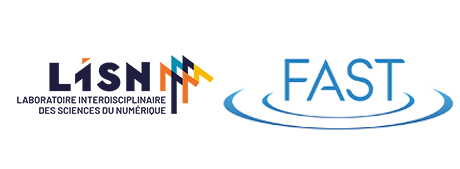
The ONERA CFD department has been developing and supporting computational fluid dynamics software for decades both for its own research and for industrial partners in the aeronautical domain. Nowadays, the elsA software, developed at ONERA since 1997, is one of the major CFD tools used by Airbus, Eurocopter and Safran. In their design services, it is massively employed to optimize airplane performance (noise or energy consumption reductions, safety improvements,...). Due to environmental constraint, noise reduction in the vicinity of airports has become a major challenge for aircraft manufacturer. The noise radiated during the landing phase is due to turbulent vortices generated by landing gears and flaps in the wings, which act like powerful whistles. The numerical simulation of the generated noise requires to handle the complex detailed geometry of landing gear or flaps and to solve billions of unknowns at each timestep to describe the time evolution of turbulence vortices during millions of timestep in order to compute few seconds of the physical time. Therefore HPC capabilities, complex geometries (re)meshing and multiphysics coupling (noise generator and propagator) are crucial points for the efficiency of the software to obtain a solution in a reasonable time. For these reasons, a demonstrator named FAST (Flexible Aerodynamic Solver Technology) is under development since 1-2 year in order to prepare a major evolution of elsA in the coming years. This demonstrator aims at providing a software architecture and numerical techniques which will allow better flexibility, evolutivity and efficiency in order to perform simulations out of reach with the present CFD tools. Thanks to previous expertise, services reclaimed by CFD simulations (pre/post-processing, boundary conditions, solvers, coupling...) are provided by different Python modules in FAST, whereas the CGNS standard (CFD General Notation System) is adopted as a data model for interoperability between modules. Thanks to code modernization (memory access, vectorization,..) we aim to reduce by at least by one order of magnitude the CPU cost of this kind of computation on actual Xeon and future Phi (KNL) or Xeon (Skylake) Intel architecture processors.